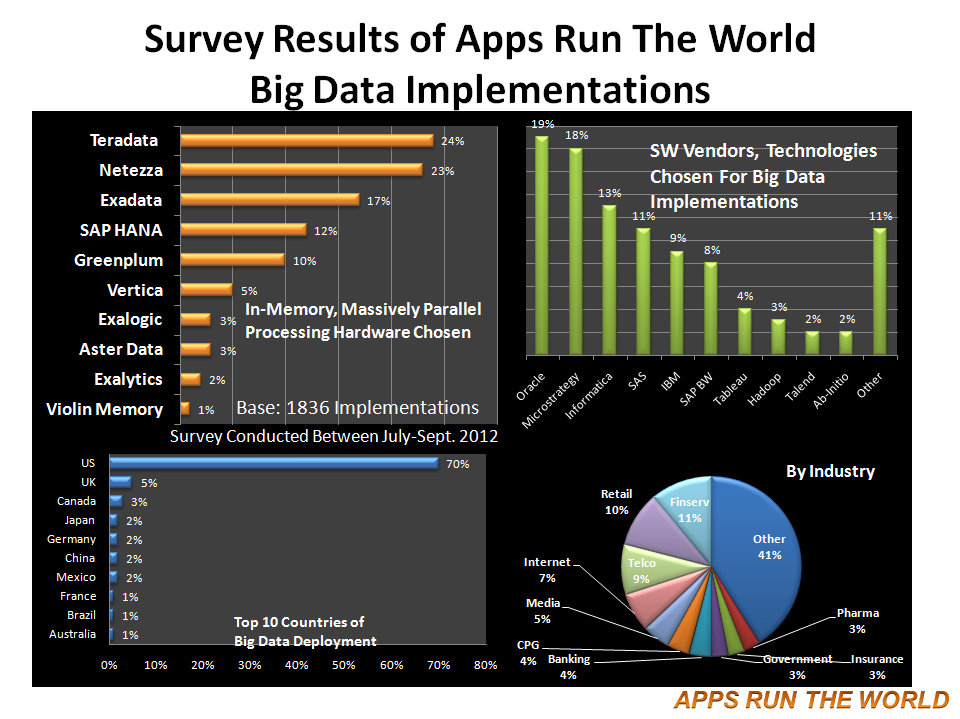
In one of the biggest surveys of Big Data implementations, Apps Run The World found first-generation vendors such as Teradata and IBM have continued to exert considerable influence with their outsized mind and wallet shares among customers.
Based on an analysis of more than 1,800 Big Data implementations, both Teradata and IBM(through its Netezza offerings) account for nearly half of Big Data implementations, according to the survey results. The former has enjoyed its incumbent status following years of experience in building data warehouses for major retailers and financial services companies. The 2011 acquisition of Aster Data shored up Teradata’s offerings in SQL-MapReduce analytics, a key attribute in leveraging open-source technologies like Hadoop for storing both structured and unstructured data on a massive scale.
On the other hand, IBM has built on its expertise in database management via Ascential, Cognos, SPSS, DB2 and Informix offerings. Its Big Data capabilities were solidified with the Netezza acquisition in 2010, allowing Big Blue to refine its massively parallel processing hardware solutions.
Both Oracle and SAP have been catching up with their Big Data offerings with the former touting a full lineup of Engineered Systems led by Exadata and the latter creating a high-performance Big Data engine from scratch with SAP HANA, which uses in-memory database technology.
Other Big Data hardware vendors that have attracted a growing following included EMC with its Greenplum hardware, HP with Vertica for just-in-time business intelligence, and eight-year-old Violin Memory with its flash Memory Arrays for high-performance database benchmarking.
On the use of software products for analytics, ETL, data visualization as well as GUI-based parallel processing that run on these massively parallel processing hardware platforms, well-established ISVs such as Microstrategy, SAS and Informatica have also scored well in the survey. Oracle, buoyed by its popular database as well as analytics software OBIEE, was the lead Big Data software being used representing 19% of the implementations.
One noteworthy aspect about the survey is that of the 1,836 Big Data implementations being analyzed, many actually came from small companies with just a handful of employees primarily involved in online gaming and social media functions.
That perhaps encapsulates the essence of Big Data, or adoption of any new technology for that matter, innovation often comes from the least unexpected places.


